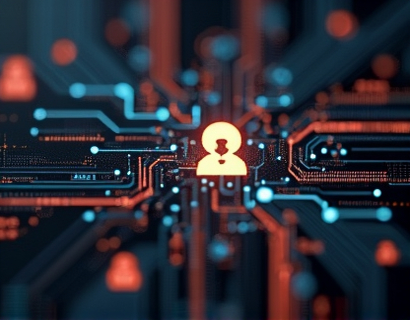AI-Driven Online Safety: Expert Strategies for a Secure and Empowered Digital Experience
In the rapidly evolving digital landscape, ensuring online safety has become a paramount concern for tech-savvy individuals. The integration of Artificial Intelligence (AI) in cybersecurity offers innovative solutions to navigate the internet with confidence and security. This article delves into expert strategies leveraging AI to fortify your digital presence, providing a comprehensive guide to a secure and empowered online experience.
Understanding AI in Cybersecurity
AI technologies, including machine learning and natural language processing, play a crucial role in enhancing online safety. These technologies can detect and respond to threats in real-time, offering a dynamic defense against cyber attacks. Unlike traditional security measures, AI systems learn from data, adapt to new patterns, and improve over time, making them highly effective in identifying and mitigating sophisticated threats.
Threat Detection and Prevention
One of the primary applications of AI in online safety is threat detection and prevention. AI algorithms analyze vast amounts of data to identify unusual patterns that may indicate a security breach. For instance, machine learning models can monitor network traffic, user behavior, and system logs to detect anomalies that suggest malicious activity. This proactive approach allows for immediate action to be taken, minimizing the impact of potential threats.
Moreover, AI-driven solutions can predict potential vulnerabilities in software and systems before they are exploited by attackers. By simulating various attack scenarios, AI can help identify weak points and recommend patches or updates to strengthen security. This predictive capability is invaluable in staying ahead of cyber criminals who constantly evolve their tactics.
Enhanced Authentication Methods
Traditional password-based authentication is increasingly vulnerable to attacks such as phishing and brute force. AI enhances security through advanced authentication methods like behavioral biometrics and multi-factor authentication (MFA). Behavioral biometrics use AI to analyze user behavior patterns, such as typing speed and device usage, to verify identity. This method is difficult for attackers to replicate, providing a robust layer of security.
MFA, when combined with AI, offers an additional layer of protection by requiring multiple forms of verification. AI can dynamically adjust the required factors based on the risk level of a transaction or access attempt, ensuring that security measures are proportionate to the threat. For example, accessing sensitive data from an unfamiliar device might trigger a more stringent authentication process.
AI-Powered Security Tools and Resources
For tech-savvy users, a variety of AI-powered tools and resources are available to enhance online safety. These tools range from sophisticated antivirus software to specialized privacy browsers and secure messaging apps. Each of these solutions leverages AI to provide advanced protection against a wide range of threats.
Antivirus software powered by AI can detect and neutralize malware more effectively than traditional methods. These systems continuously learn from new threat data, updating their databases in real-time to ensure comprehensive protection. Additionally, AI-driven security suites often include features like vulnerability scanning, firewall management, and intrusion detection, offering a holistic approach to cybersecurity.
Privacy-focused browsers utilize AI to block trackers and monitor online activity, helping users maintain their privacy. These browsers analyze website behavior and content to identify potential risks, such as phishing sites or malicious downloads. By blocking these threats proactively, AI-powered browsers enhance the overall security of the browsing experience.
Secure messaging apps also benefit from AI integration, providing end-to-end encryption and real-time threat detection. AI algorithms can analyze messages for suspicious content and alert users to potential scams or phishing attempts. This ensures that sensitive communications remain confidential and secure.
Personalized Security Advice and Education
One of the most significant advantages of AI in online safety is its ability to provide personalized advice and education. AI-driven platforms can assess an individual's online behavior and risk profile, offering tailored recommendations to improve their digital security. For example, if a user frequently clicks on suspicious links, the system might suggest enabling additional browser protections or provide training on recognizing phishing attempts.
These platforms can also deliver educational content in a way that is accessible and engaging. Interactive tutorials, quizzes, and simulations help users understand complex security concepts and best practices. By empowering users with knowledge, AI-driven resources enable them to make informed decisions and adopt secure habits.
Building a Secure Digital Habit
Creating and maintaining secure digital habits is essential for long-term online safety. AI can assist in this process by monitoring user behavior and providing real-time feedback. For instance, an AI-powered tool might alert a user when they are about to access a known phishing site or when their device is connected to an unsecured Wi-Fi network.
Regular security audits and updates are also crucial. AI can automate these tasks, ensuring that software and systems are always up-to-date with the latest security patches. By integrating these checks into daily routines, users can significantly reduce their exposure to vulnerabilities.
Managing Digital Footprint
Another critical aspect of online safety is managing one's digital footprint. AI tools can help users monitor and control their online presence by tracking social media activity, search engine results, and other public data. These tools can identify potentially sensitive information and suggest steps to mitigate risks, such as adjusting privacy settings or removing outdated profiles.
AI can also assist in detecting and preventing identity theft. By analyzing patterns in data breaches and identity theft cases, AI systems can alert users if their personal information is at risk. This proactive monitoring allows for swift action to protect against identity theft and other forms of cybercrime.
Community and Collaboration
Online safety is not just an individual responsibility but also a collective effort. AI can facilitate community-based approaches to cybersecurity by fostering collaboration and information sharing. Platforms that leverage AI can connect users with similar interests and concerns, creating communities where best practices and resources are shared.
For example, AI-driven forums and discussion boards can serve as spaces for tech-savvy individuals to exchange tips, report threats, and support each other in maintaining online safety. These communities can also collaborate with cybersecurity experts to develop and refine AI-driven solutions, ensuring that they remain effective against emerging threats.
Policy and Regulation
While AI technologies offer powerful tools for enhancing online safety, they also raise important questions about privacy, data governance, and ethical use. It is crucial for users to stay informed about relevant policies and regulations that impact their digital rights and security. AI can help demystify these complex topics by providing clear, accessible explanations and updates on regulatory changes.
Engaging with policymakers and advocating for strong cybersecurity measures is another way AI can empower users. By analyzing public sentiment and user feedback, AI can help shape policies that protect individuals while promoting innovation. This collaborative approach ensures that online safety measures are both effective and respectful of user rights.
Conclusion
In an era where digital threats are increasingly sophisticated, AI-driven strategies offer a robust framework for ensuring online safety. By leveraging advanced technologies, tech-savvy users can enhance their security, stay informed, and maintain control over their digital lives. The integration of AI in cybersecurity not only provides powerful tools for defense but also fosters a community of informed and empowered individuals. Embracing these expert strategies will enable users to navigate the internet with confidence, knowing that their digital journey is protected by the latest innovations in AI.










































